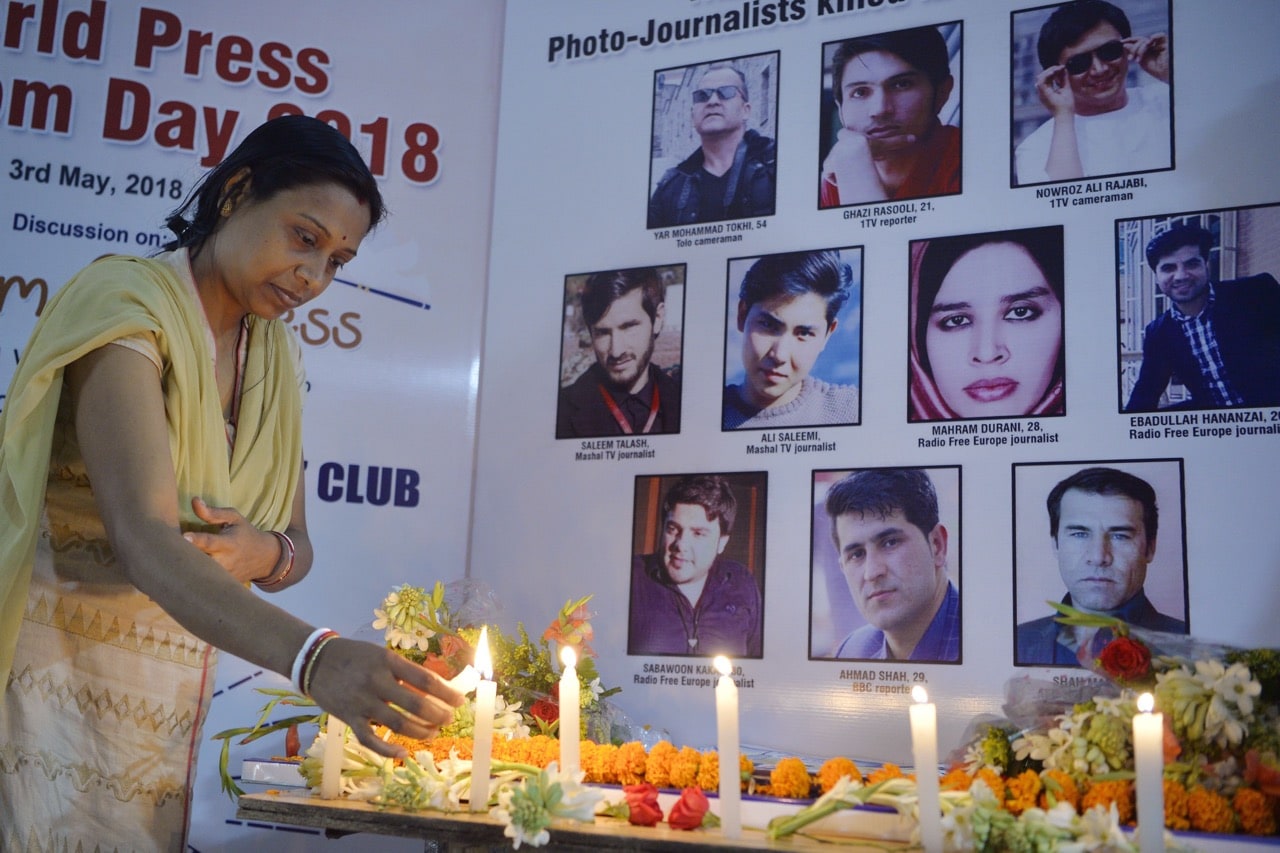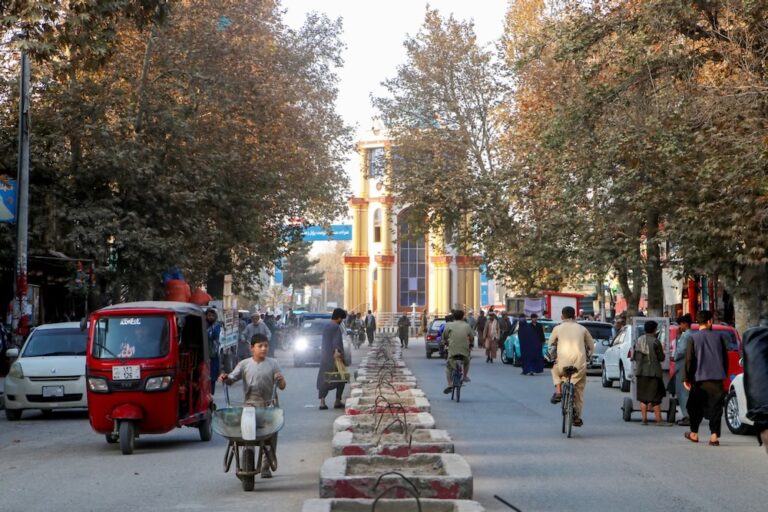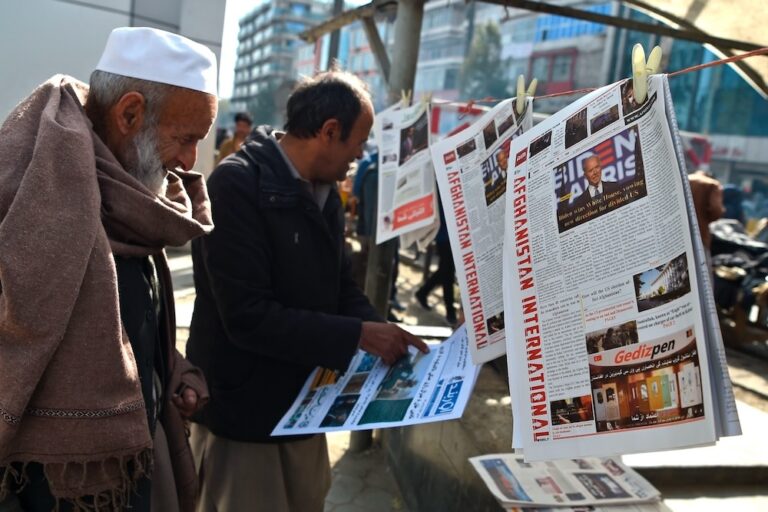A suicide bombing killed 9 Afghan journalists and injured 8 others in the capital Kabul on 30 April 2018.
This statement was originally published on afjc.af on 30 April 2018.
A suicide bombing killed 9 Afghan journalists and injured 8 others in the capital Kabul on the morning of Monday [30 April 2018]. Hours later a journalist was assassinated in the southern city of Khost on his way to work, making this the deadliest day in Afghanistan’s journalism history.
Reports indicate that a suicide bomber, posing as a journalist, detonated his explosives while standing among a group of reporters who had gathered to cover the first suicide attack which took place in a heavily-fortified area of Kabul.
Azadi Radio reporters Mahram Durrani, Ebadullah Hananzai and Sabawun Kakar, Mashal TV reporter SalimTalash and cameraman Ali Salimi, 1TV reporter Ghazi Rasuli and cameraman Nauruz Ali Rajabi, AFP chief photographer Shah Marai and ToloNews TV cameraman Yar Mohammad Tokhi were killed in the attack.
IS (Daesh) claimed responsibility for the attack. In another tragic incident, hours later, unidentified gunmen shot dead BBC Pashto journalist, Ahmad Shah, in the southern city of Khost.
These attacks come just six days after a local TV journalist was killed by unknown gunmen in the southern city of Kandahar.
“We are shocked and saddened by the horrific violence perpetrated against our colleagues in Kabul and Khost –the deadliest day for Afghan media; the journalists in Kabul were on duty [at the site] to report on the earlier attack, simply informing the public,” said Afghanistan Journalists Center (AFJC) Executive Director Ahmad Quraishi.
“Today was really a dark day for the Afghan media and we are deeply shocked and saddened by these barbaric attacks, our thoughts and prayers are with those whose innocent lives [were lost] in the attacks.” AFJC called on the Afghan government to seek out and prosecute the perpetrators as quickly as possible, and also urged the International Court of Justice and the UN Security Council to investigate the incidents, according to Mr Quraishi.
The sharp increase in violence in the country has been a big blow to freedom of the press which has been the biggest achievement of the people of Afghanistan since the collapse of the Taliban regime in 2001.



